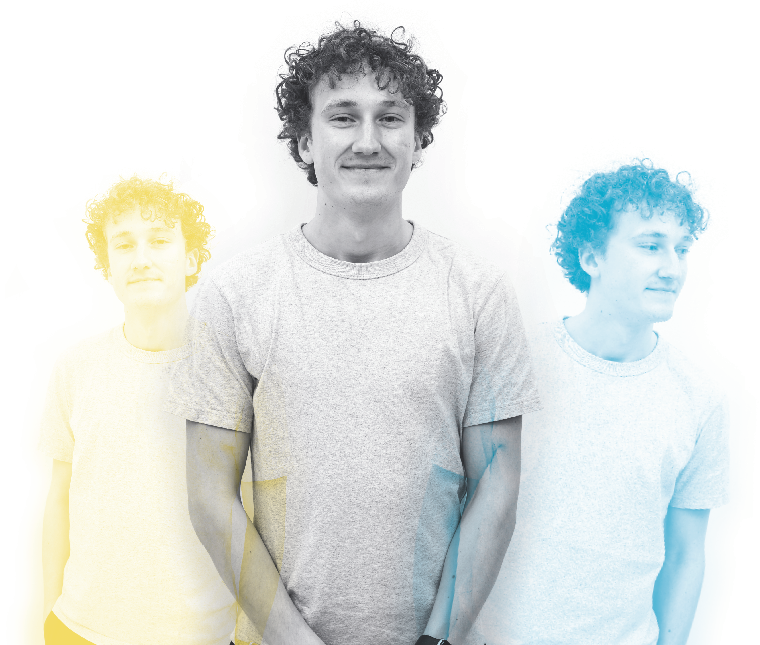
Final year project
Improving the safety and autonomy of taking medication for those diagnosed… [Read more]

Roe - a smart medication dispenser for those living with dementia
The dispenser comprises of a front display, main base, and four modular components, all of which can be removed to allow the user to improve the autonomy of their daily life.
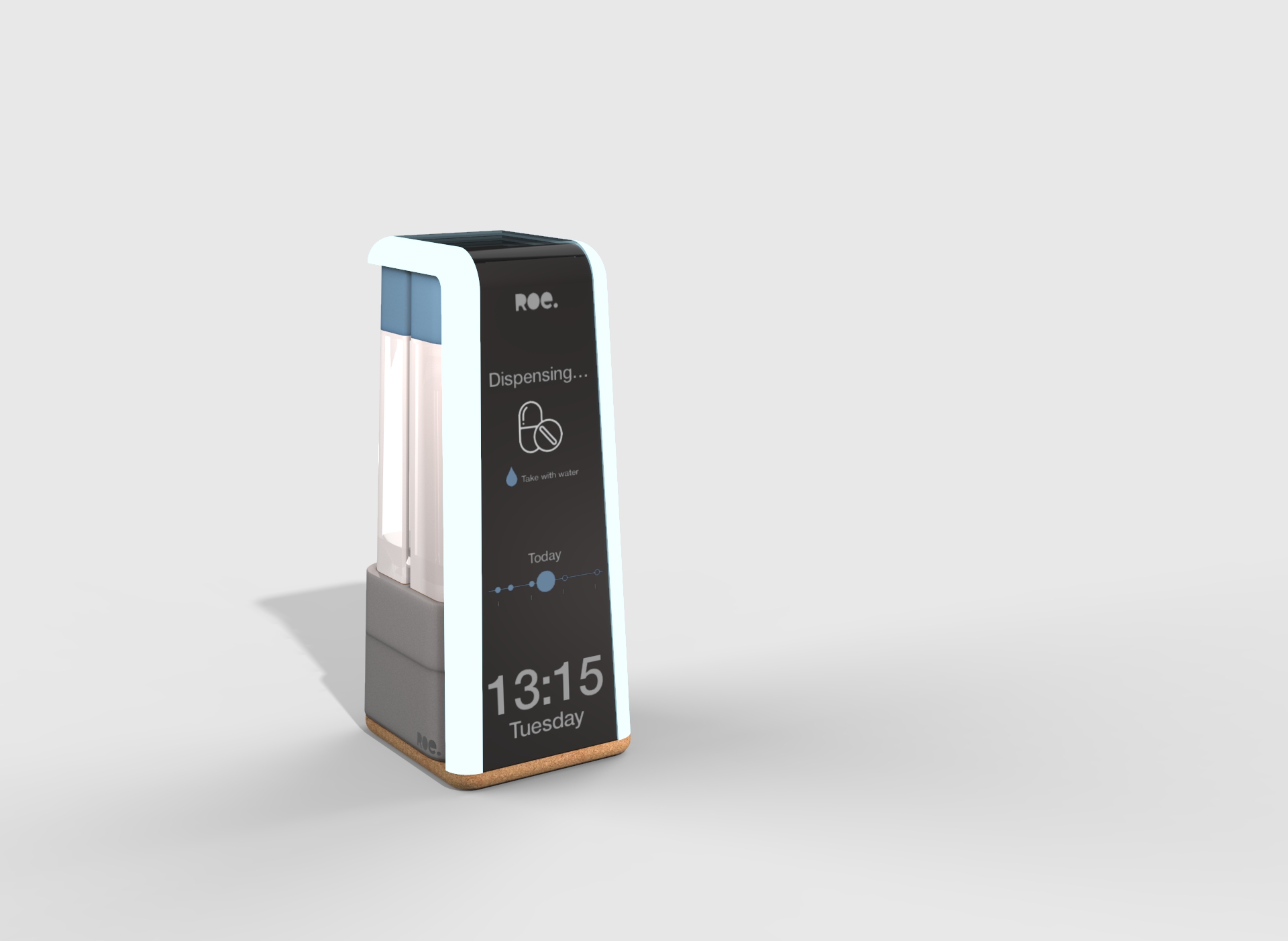
The display
The display tells the user the time, date as well as other important information such as when their next dosage will be, what it is, and how they should take it. The outer LED strip changes colour depending on the time of day and acts as an alert to the user when their medication is due.

Storage
The compartments can be removed from the base in order to refill them. They connect seamlessly with the product and know when the medication has to be refilled, as well as the location of them. They are of a suitable size that they can be taken around with them and have a safety mechanism that prevents the user from accessing the medication inside.
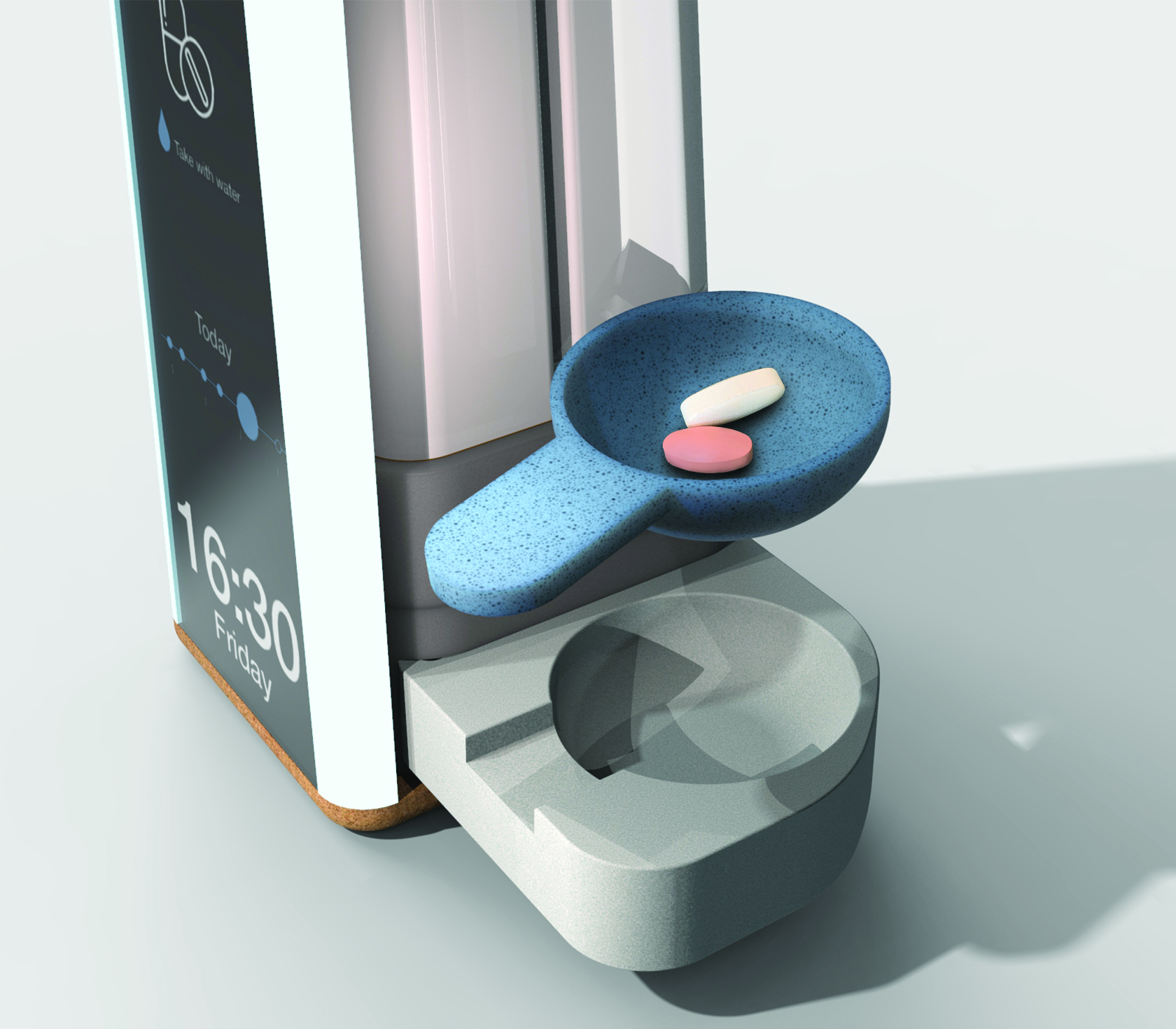
Easy access
The internal mechanism dispenses the correct dosage of medication at the correct time from any of the four compartments. The medication is dispensed into the cup which emerges at the appropriate time and the cup can be picked up which caters to those with reduced dexterity.
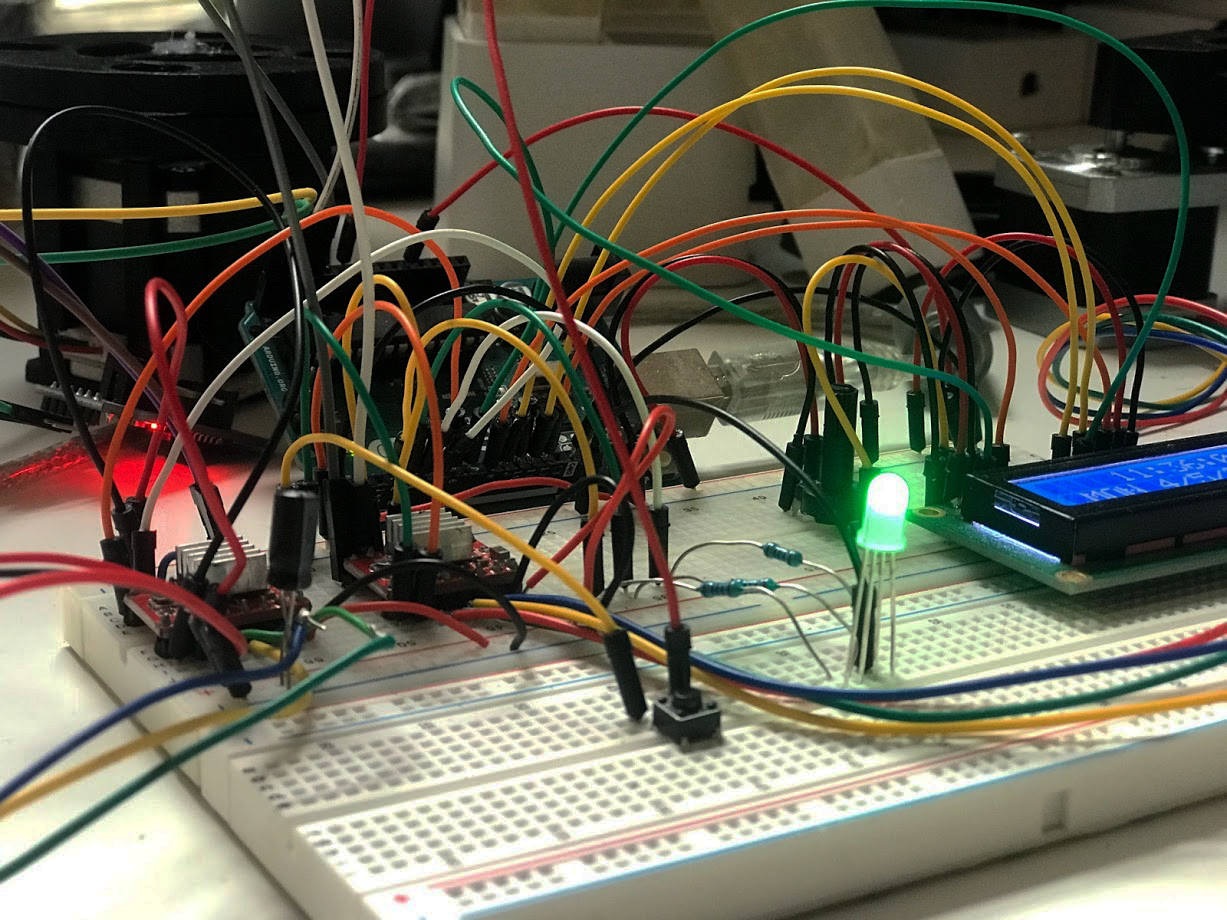
Internals
The internals of this project were developed and programmed via Arduino. This incorporated an RTCC which displays the current time, from which alarms could be set in order to activate the internal mechanism at the correct time.
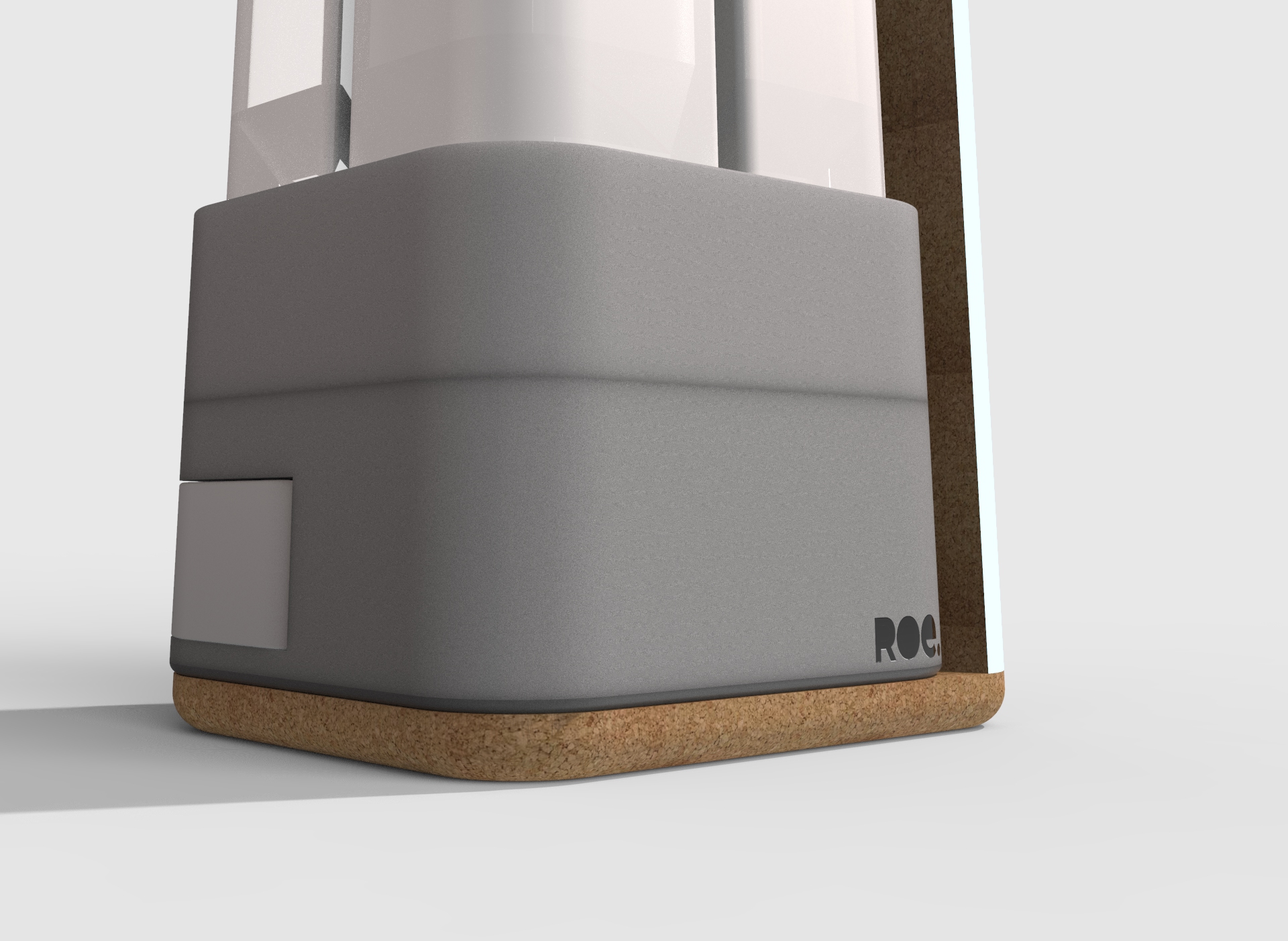
Reliable and safe
The mechanism consists of two discs, one of which rotates back and forth, 'carrying' medication from the compartments to the tray, separated by a solenoid that activates the correct time to dispense the correct dosage.
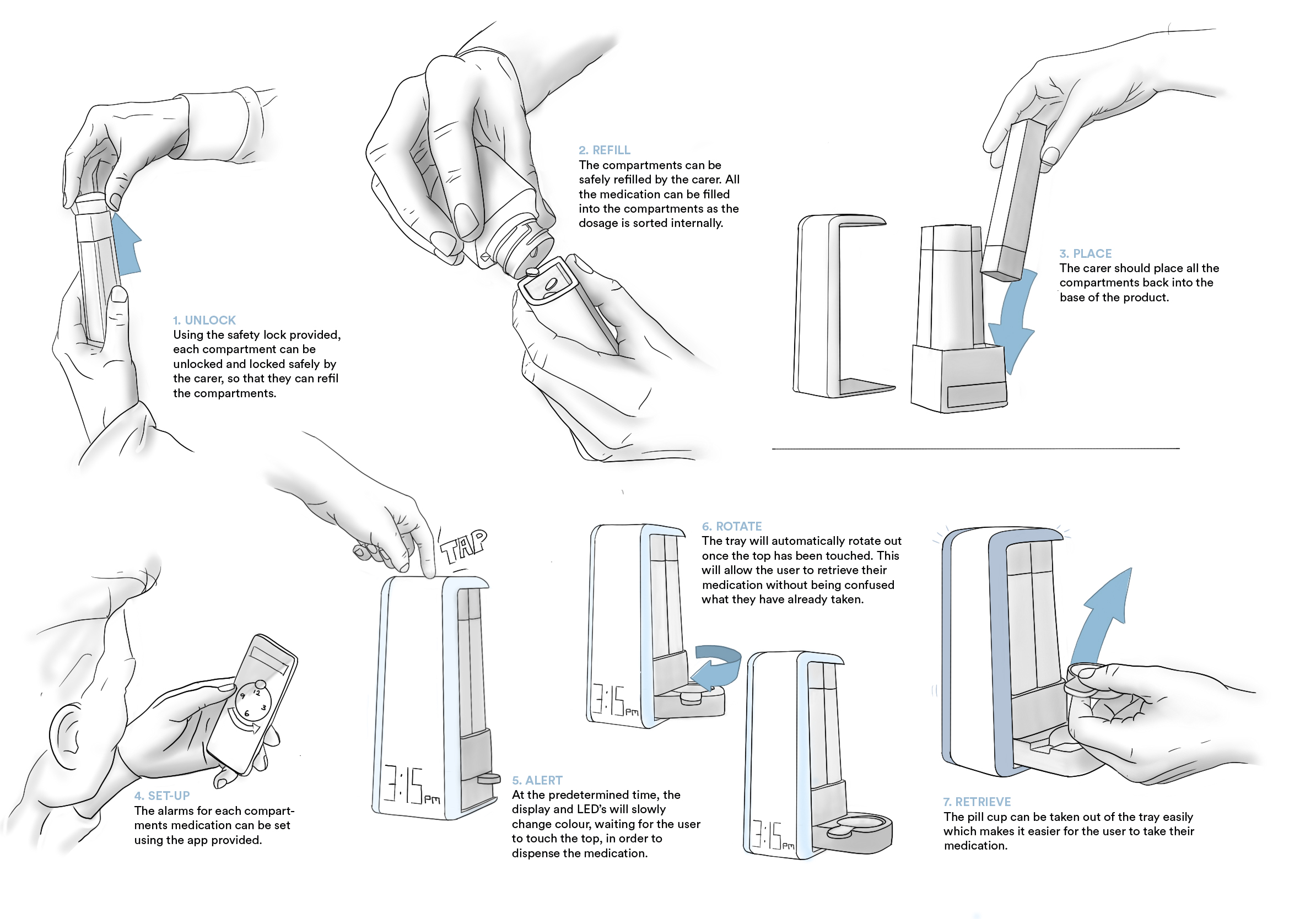
Scenario
The scenario of use of Roe is described above. This includes the refilling of compartments to dispensing and consumption of medication.
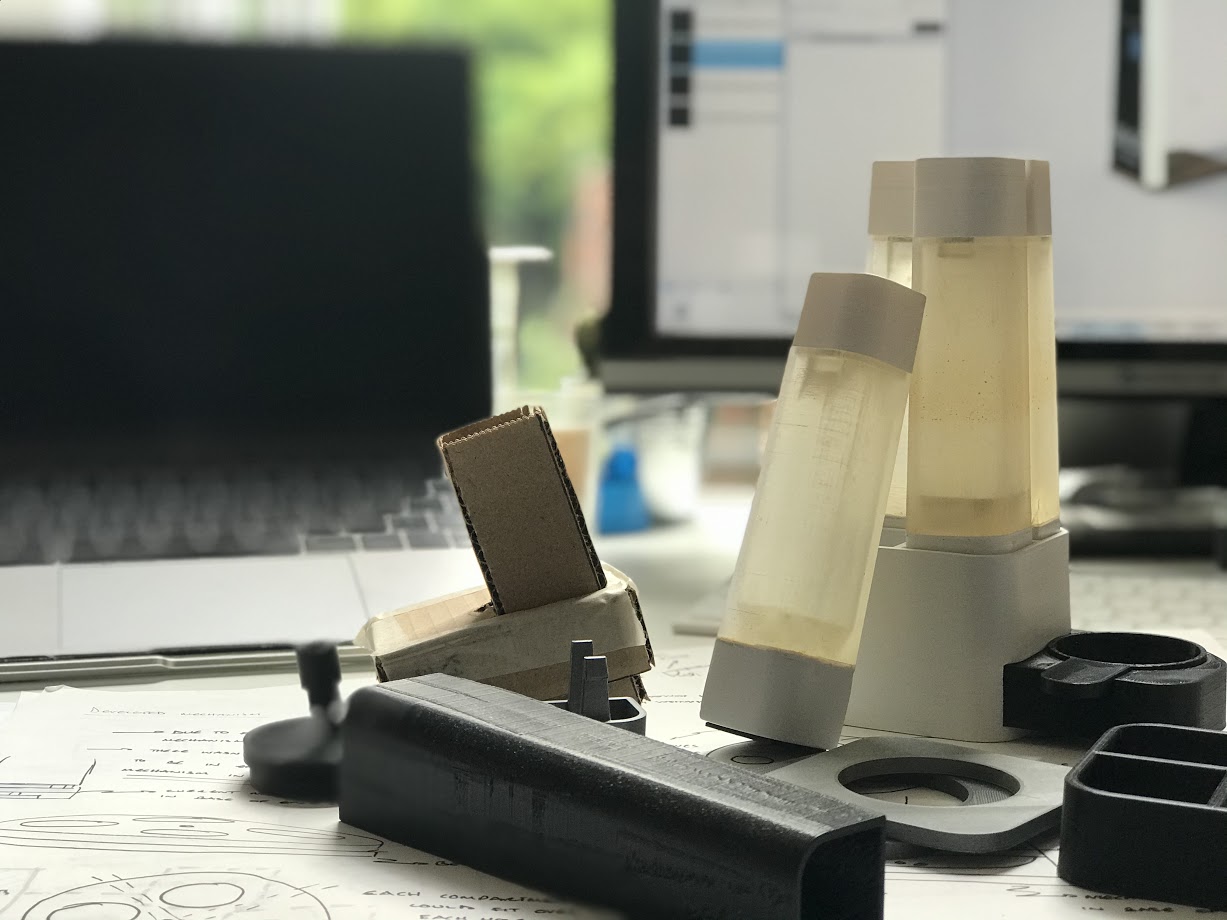
Development
Models were created throughout the process, ranging from low fidelity cardboard models for the form to quick 3D prints for scale and mechanism development and finally, the final aesthetic model produced.
Charles Elson
I am a motivated and ambitious designer who aims to solve common problems with meaningful and innovative solutions through the design of products or services.
Those suffering from dementia are often heavily reliant upon a third party to care for them. This can be a heavy burden on the carer with the majority of contact time spent managing medication dispensation and use in order to reduce any possibility of risk to the patient. Roe is a smart medication dispenser that reduces the burden on the carer and increases the independence of those with dementia. It has been driven by the positive effect on the quality of life that this product can have on both dementia sufferers and their carers and the independence it provides.
This project has enabled me to put my design skills into practice using user-led research. It has been a culmination of the past four years studying Product Design and has been an opportunity to implement skills acquired during my year studying abroad and working in industry. It showcases my strengths ranging from user experience, design thinking and modeling, through to producing a viable design for manufacture and production. It has lead me to gain a further understanding into professional briefs and what is required on both a small, and commercial scale.
My goal throughout has been to design and produce products aimed at improving the lives of others and Roe is part of a ‘smart’ range of products driven by this ethos.
Dissertation
User perception and usability of biometric authentication in mobile e-commerce
Final year project
Improving the safety and autonomy of taking medication for those diagnosed with early onset dementia
Awards
'20 Diploma in International Studies
Awarded by Loughborough Design School for completing a placement year abroad, consisting of the Erasmus exchange scheme at TU Delft and Polytential.
Experience
TU Delft
In the 6 months participating in the Erasmus exchange scheme at TU Delft, I was able to seamlessly integrate into Dutch culture and their higher educational system and also able to develop my skills as a designer, picking up cultural aspects and views I would not have done elsewhere. Having been set a professional brief and completing numerous interviews, site visits and developments of concepts, I, alongside a multidisciplinary team, was able to develop and create a functional prototype of an internal meeting organiser that has been installed on site.
Polytential
I was part of a small design team at a start-up company in the Netherlands, whose goal was to develop an automated plastic waste analysis system. I worked on developing app interfaces, delved into programming as well as visual and physical product design related to future product development. Working in a small team meant that I was able to have a say in company strategy and my designs were presented to prospective clients, as well as used throughout the company website and offices.
IBM iX
I worked as a User Experience Designer for IBM iX, which gave me an opportunity to approach UX Design from different perspectives and commercial applications. Working on the design and development of a new online presence for a world-renowned publishing company, Pearson, I was required to interact with clients, collaborate with team members and design product updates for use on a global scale. This was a contrast to my previous experience and one where I was able to not only learn from a professional team but also put my design skills into practice and contribute to the commercial success of the organisation.
Placements
September 2018 - February 2019
Interaction Design Student, TU Delft
February 2019 - July 2019
User Experience Designer, Polytential
July 2019 - September 2019
User Experience Designer, IBM iX